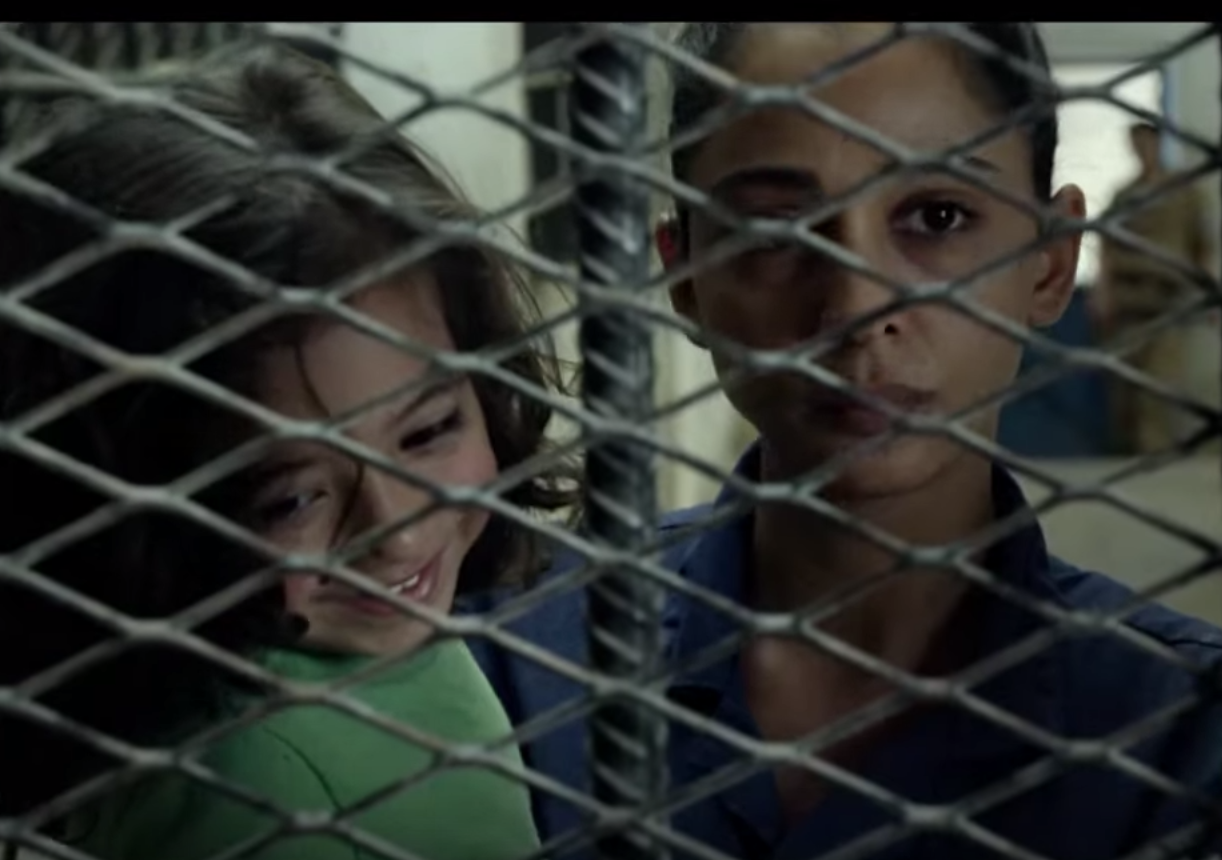Boston’s Palestine Film Festival, which celebrates its 10th anniversary this year, opened on Friday, October 15 with a timely, searing showing of Mai Masri’s 3000 Nights.
3000 Nights tells the story of Layal Asfour, a newlywed schoolteacher turned political prisoner in the early 1980s. She gives birth in Israel’s Ramla prison, and, with the other women inmates, raises her child there.
The film, which sold out two days before opening night, opened to an audience of 400 at the Museum of Fine Arts in downtown Boston. Masri and her daughter Hanna Chamoun, who plays one of the Palestinian prisoners, were both in attendance. 3000 Nights is Masri’s first feature film.
This year’s festival offers an impressive lineup of 31 films in 17 days, including short films, live Palestinian storytelling, and two of Masri’s ten previous documentaries.
“This was a story that had to be told,” said Masri, who shot the film in an old Jordanian prison with an all-Palestinian cast, many of whom had themselves been imprisoned, or had family or friends imprisoned. Actress Khitam Edelbi, who plays an Israeli inmate, spent 15 years of her youth visiting her brother at Ramla. He was released in the same 1983 prisoner exchange depicted in the film. For some of those involved who had been imprisoned by Israel, the film held an important therapeutic value.
Whether the ember of a guard’s cigarette in a dark interrogation room, or the women’s shadow puppets on walls illuminated for two-year-old Nour, the film’s powerful cinematography plays constantly with light and dark. This is a story of shared resistance among the small group of incarcerated women: stitching the word Falasteen [Palestine] into the Israeli uniforms they are forced to sew, ululating at the birth of Layal’s child, or beating tin cans in solidarity even after being tear gassed.
The film is set at a time when Palestinian political prisoners and Israeli convicts were kept in the same prison, and the story dramatizes the tensions and solidarity between the Palestinian and Israeli women.
3000 Nights’ most brutal sequences depict clashes in the prison following the 1982 Sabra and Shatila massacres in Lebanon. From tear gas to strikes, Masri aimed to stay close to the real events.
Palestinians prisoners had to strike for books and pencils, and gained these rights slowly, over time. “Even colors were considered subversive,” she said.
Masri also based her Israeli characters on research, including Rachel, a human rights lawyer, and Shulamit, a sympathetic inmate. In fact, the later decision to separate Israeli and Palestinian prisoners was perhaps due to the solidarity this mixing had caused. “That was fascinating to show,” Masri said. “No one ever talked about that.”
The film was selected as the Jordanian entry for Best Foreign Language Film at the 89th Academy Awards, and recently won the Jury Award at the Women’s Film & Television Showcase in Los Angeles.
Masri hopes to raise awareness about Palestinian political prisoners, and particularly child prisoners. There have been more than 800,000 Palestinian political prisoners since 1967. Today, there are about 6,000, including several hundred who are under 18. Some 750 Palestinians are currently imprisoned without trial or charges, through a process called “administrative detention,” in which six-month detention orders can be indefinitely renewed.
“This shouldn’t continue. There’s so much we can do,” Masri said.
“I hope this film leaves you with hope,” she added. “The main thing is that people resist. The justice of our story is the strongest thing we have.”
The Palestine Film Festival continues until October 30. For tickets and schedule, please visit: http://www.bostonpalestinefilmfest.org
